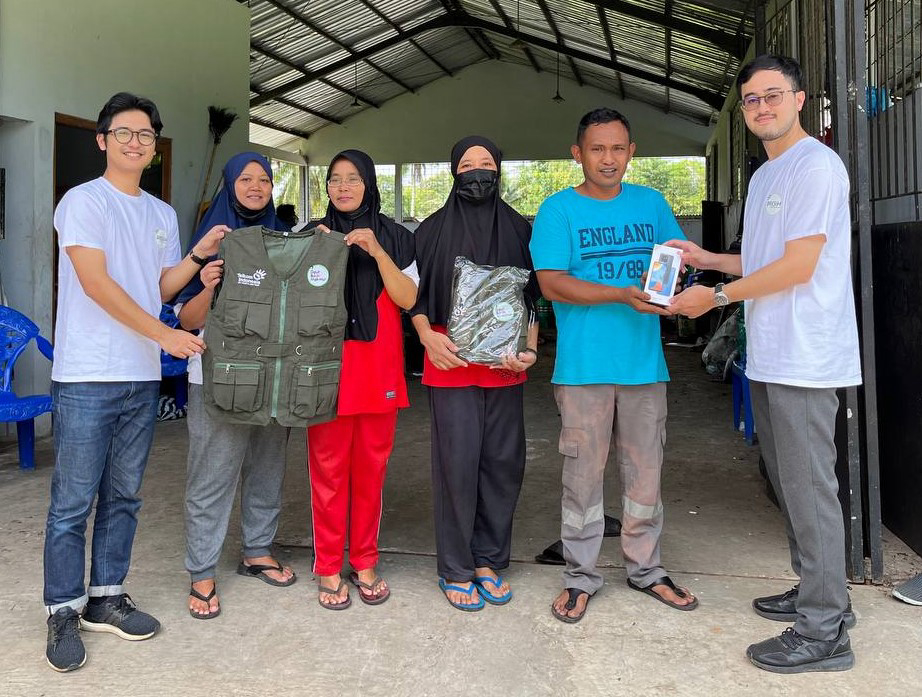
Employees of Telkom Magelang (on the far left and far right), as initiators of the Bresih Program, handed over operational vests to the personnel of the Tuksongo Village Waste Management Facility recently.
Telkom initiated the Bresih Program to support the preservation of a sustainable environment based on ESG principles.
Jakarta, 12 June 2023 – The environment remains a critical issue in Indonesia and around the world. One of the major causes of the environmental crisis is the high volume of waste that human activities generate. According to data from the Ministry of Environment and Forestry (KLHK) in 2019, approximately 64 million tons of waste were produced in Indonesia annually, with 60% of this figure being disposed of in landfills, 30% left untreated, and polluting the environment, while only 10% is recycled.
Taking this situation into account and in adherence to the ESG (Environmental, Social, and Governance) principles, PT Telkom Indonesia (Persero) Tbk (Telkom) is actively working to address this issue to preserve a sustainable environment through the Bresih program in Tuksongo Village, Magelang, Central Java. "Bresih" is a Sanskrit word, which means clean or free from waste, thus the program is expected to support Tuksongo Village in being clean from waste.
Telkom Magelang initiated the program by mobilizing the community living around Borobudur Temple to manage waste sustainably. As part of Borobudur's tourism, the Tuksongo Village Waste Management Facility collaborates with the Telkom-supported Balkondes (Village Economic Hall) in Borobudur through the Bresih program. Every day, they collect nearly 1 ton of waste for processing, applying the concept of circular economy.
Hery Susanto, of Telkom SGM Community Development Center said that Telkom's efforts align with the ESG principles it applies to preserve a sustainable environment. "Telkom is committed to supporting communities in creating a healthy and sustainable environment by implementing various environmental programs, including the Bresih program, which applies the circular economy concept," Hery said.
The concept of a circular economy involves continuously utilizing the value of material resources and using energy more efficiently and renewably. In this context, waste, as the main issue, is maximized for its value through reuse or recycling.
Through this program, the residents of Tuksongo village are now actively sorting their waste independently, which is then processed or handed over to the waste bank. The entire process of developing this program is linked, and it is expected that by managing waste in an environmentally friendly manner, the program would benefit the local community and they can also financially benefit from it.
#ElevatingYourFuture